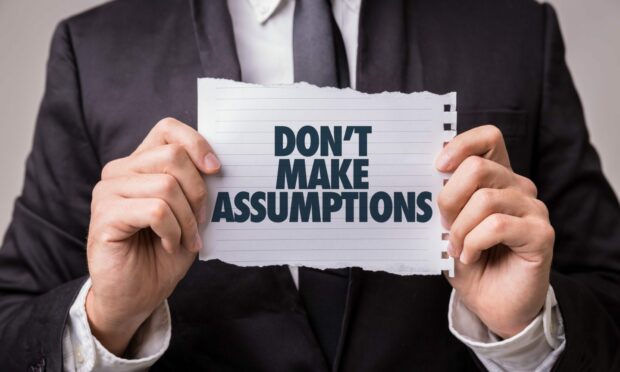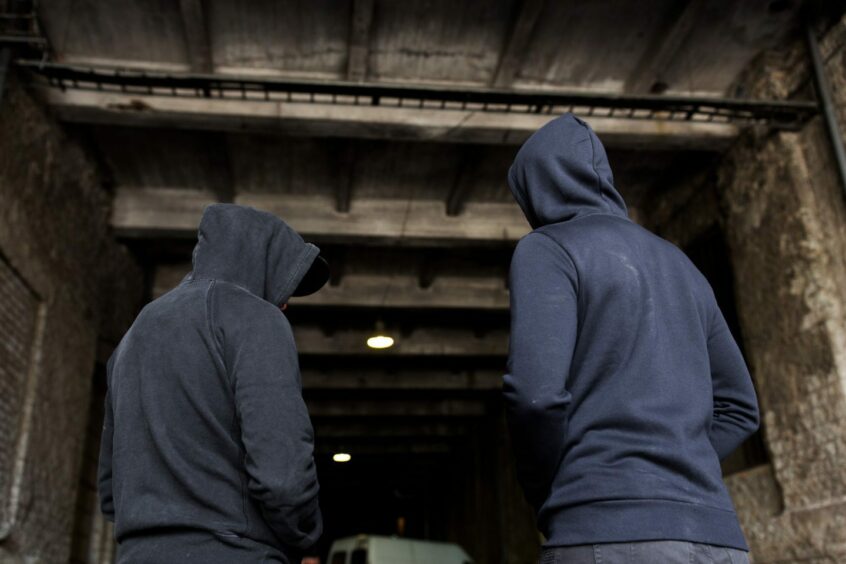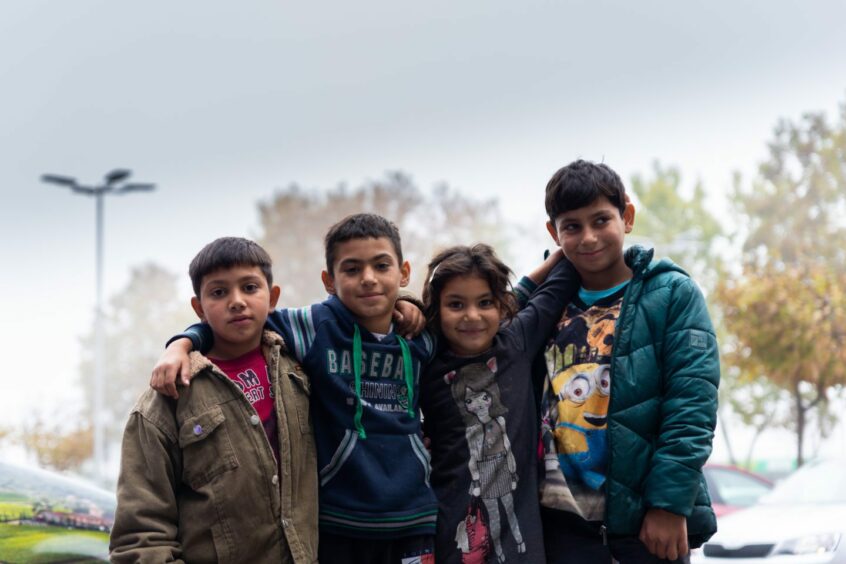According to the Cambridge Dictionary, preconception is “an idea or opinion formed before enough information is available to form it correctly”.
We also may call this ignorance, which can be described as a “lack of knowledge, education or awareness”.
There’s ignorance and there’s ignorance. First up, the not-so-important stuff.
Here are some of the questions I’ve been asked when on my travels, once I told people I was Scottish and or British.
“But you’re wearing trousers. Where is your kilt?”
“Do you have electricity in Scotland?”
“Do you know the Queen?”
“Whereabout in Ireland is Scotland?”
All true by the way.
To the bunch of guys in the mosque compound in Bishkek Kyrgyzstan, I explained about the kilt and how it is usually only worn at certain special occasions.
To the “do you have electricity in Scotland” question, asked with honesty by a guy in Tatarstan, Russia, I replied: “No not yet, but we hope very soon!”
“Do you know the Queen?” asked the very excited American guy I met decades ago in Hong Kong. I replied: “Why yes of course, we are neighbours.” Technically true, for in the summer she used to reside at Balmoral.
“Where about in Ireland is Scotland?” asked the chap in Ramallah in the West Bank, Palestine. This one puzzled me, and by that I mean whether to laugh, shake my head, be honest or tell a porky.
I simply told him to Google it.
But I’ve also been guilty of ignorance. I first went to Russia in 1993, not long after the USSR had been dismantled. As a young man, from watching the news, the only thing I knew about Russia was that they had scary nuclear weapon parades through Red Square.
And of course, I knew for a “fact” that Russia was always covered in snow and freezing cold.
Oh, and it was always grey, dull and depressing.
Imagine my shock then when I first walked into and stood in Red Square. It was so colourful – and no snow. It was summer and around 25 degrees C. I felt rather silly, and my preconceptions quickly melted away.
Having said that, Red Square is not red, neither is it square.
Why do we have preconceptions of others? Why do we generalise? I don’t know.
Possibly from our own experiences, but I’d say it’s more about the society we live in. If someone in our family, or friends, or school, pushes a certain view of another group of people, there’s a good chance we will latch on to it. Especially when we are young and impressionable.
Yet, it’s easy for us all to say: “Oh, but I’m not prejudiced at all!”
Hmm, how would we react when, if walking down a street at night by ourselves, we see coming walking the other way, four young guys in hoodies?
We glance across the street, and on the other side are four sweet old ladies on their way back from a church meeting. Do we cross the street or keep walking towards the hoodies?
Maybe for our personal safety, and just to be sure, it may be best to cross the street to be beside the sweet old ladies. But then again, if we do so, are we not guilty of preconception or stereotyping of these young guys?
Do people still tell Irish jokes these days? No idea, probably not allowed to due to discrimination. When I was growing up, it seemed that every other day there was another Irish joke going around. And they always had a Scotsman, Englishman and Irishman in them.
“A Scotsman, Englishman and Irishman walked into a bar…”
Remember those? I found them hilarious, but even at young age, I wondered why was it that the Irish guy was always called out as the idiot? I never found an answer. But I’ve met loads of Irish people over the years and they are far from stupid.
I’m sure you’ve all heard the following phrases used over the years.
“Germans are all arrogant and unfriendly.”
“French people are rude, especially café owners!”
“Americans are all stupid.”
All ridiculously wrong of course. The Germans are a wonderful people, a highly intelligent people, and super friendly. And from time I’ve spent in Paris, I actually found the café owners to be way more polite compared to many establishments in London.
As for Americans being stupid, I’d seriously doubt if they are any more stupid than some folk from our own country.
There’s a lot of preconceptions and generalising of us Scots also. Ginger hair, kilt wearing, passionate/aggressive, loud, and of course drunk.
Take Willie the janitor on the cartoon the Simpsons, whom I’ve written about previously. Although the Indian shopkeeper character Apu is now not voiced by a white actor due it being racist/stereotypical, Willie continues to be portrayed as an angry, drunk, kilt-wearing jock.
Doesn’t bother me one bit, I love him, he’s my favourite character. But it does smack of one rule for one set of people, and one for another.
But on to the serious side of ignorance, the bad, nasty side.
For example, hate groups in America like the KKK. Yes, sadly they still exist. And look at what is happening more and more in Israel/Palestine with civilian Jews and Muslims randomly killing each other, simply because of the preconceptions that each side has about the other. Senseless violence, the lot of it.
“No Blacks, No Irish.” Apparently, it was quite commonplace in the UK, even as late as the 1960s, for small guesthouse owners to display signs such as this outside their establishments.
How truly awful. Unbelievable ignorance. Thankfully we’ve evolved since then.
The Roma, or gypsies, are a much-persecuted and often hated people. I’ve spent much time over the years in Hungary, Slovakia and Romania where the Roma come in for so much abuse, both verbal and physical.
No one seems to like them and they are pushed from pillar to post. They all get tarred with the same brush whether they’ve individually done something wrong or not.
And look what’s currently happening in Russia. The hatred whipped up by the Kremlin has resulted in some Russians calling for all Ukrainians to be killed, even children. The state-controlled Russian media is hammering home: All Russians = good. All Ukrainians = bad.
Be it Jews, Muslims, gay people, black people, Roma, the French, the English, heck take any group you like, my statement time and time again the world over when I’m chatting with someone who suddenly says, for example: “I don’t like Italians!” I always say:
“Wow that’s impressive. I never realised you’ve met them all individually and gotten to know them one on one.”
Honestly, it doesn’t matter what group of people is being vilified and by whom, this line works a treat. It stops even the most rabid person in his or her tracks. Try it.
Surely humanity would be far better if we saw the individual and not the label or box that society has put them into.
At the end of the day, we all bleed the same colour.
Talking about stereotypes, and talking about Germans, sshh: “Don’t mention the war…” You may have missed this wonderful/awful news, delete as you see fit. I hear that John Cleese is about to write a brand-new series of Britain’s all-time favourite comedy, Fawlty Towers.
To say I have mixed emotions about that would be the understatement of the year.
Next week – You cannot recreate perfection.






Conversation